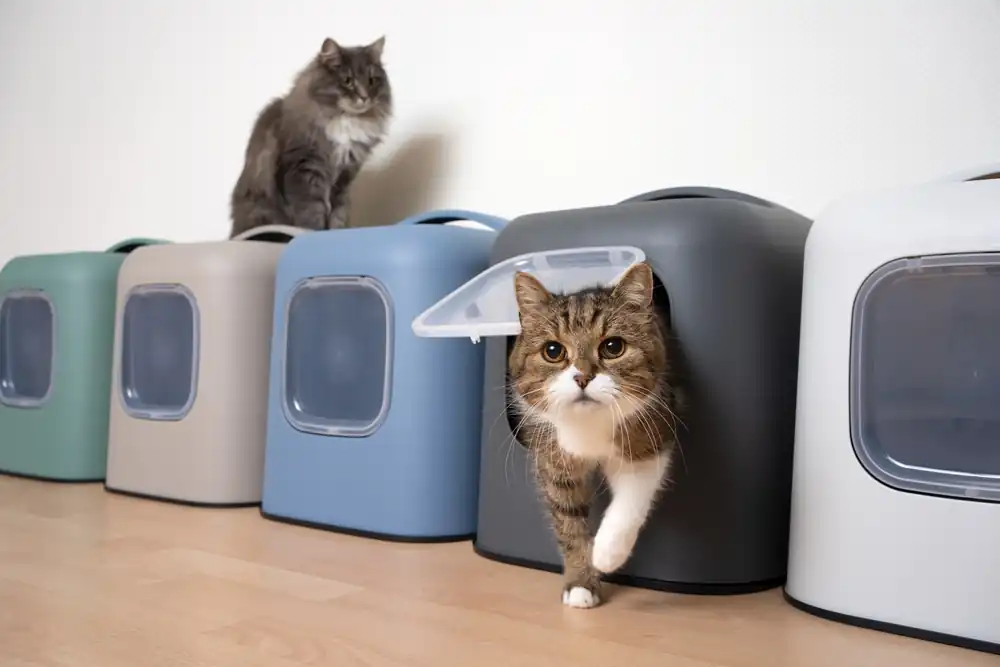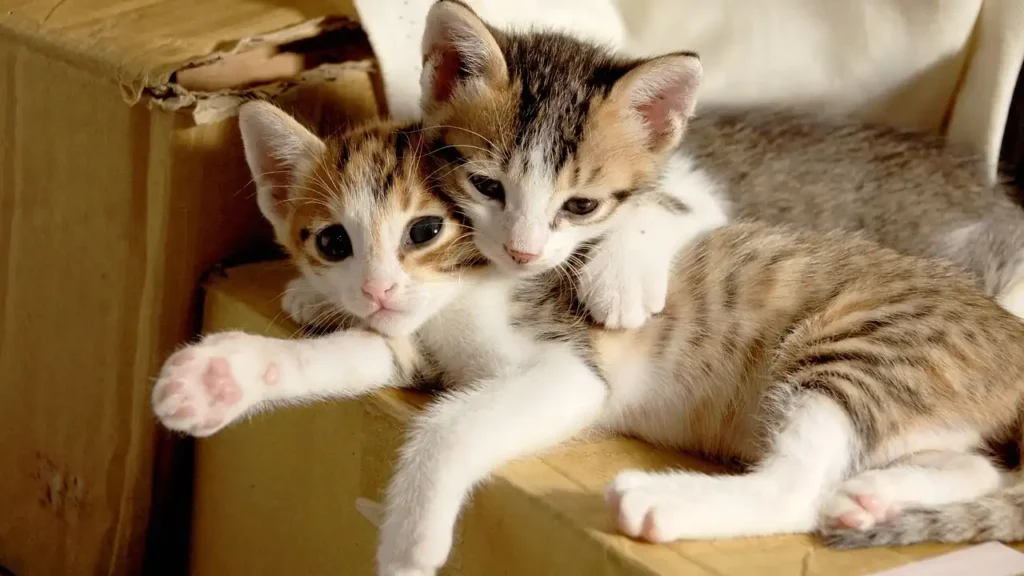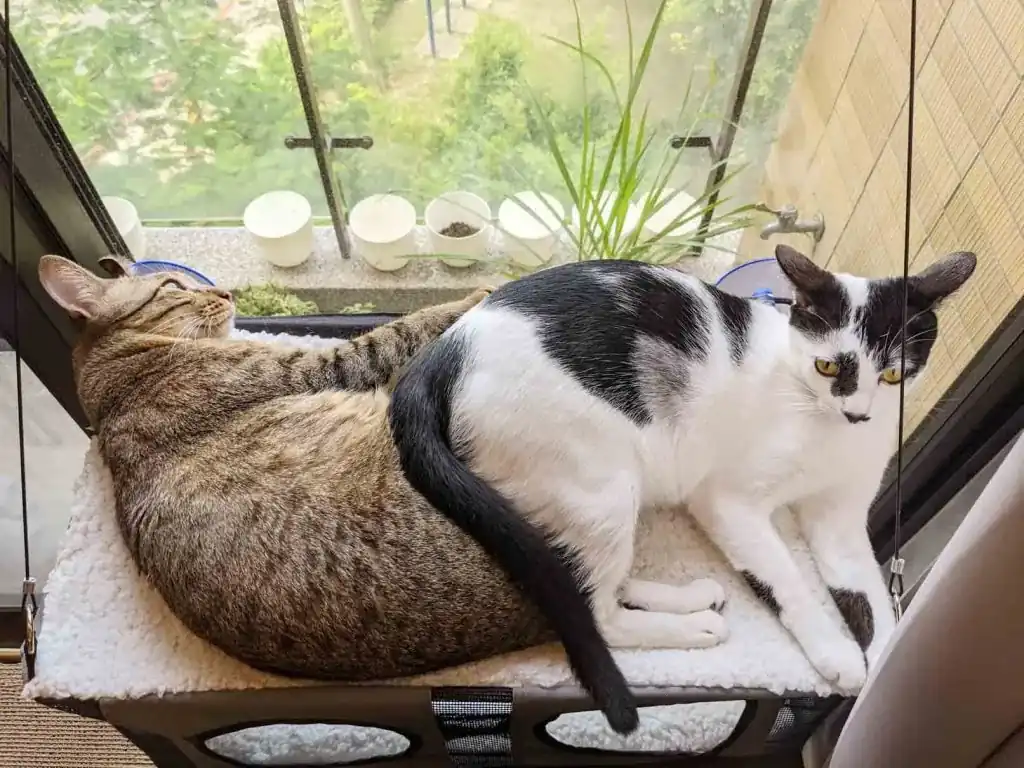What should I be aware of when bringing home a second cat?

Cat owners must know that owning a cat is really addictive! They have a unique charm that makes people want to keep a second or third …… Keeping multiple cats not only heals you but also helps your cat not to be lonely. Although it sounds perfect, it’s not as easy as we think. There are many issues that must be considered beforehand when bringing home a second cat, especially if the cat you bring home is a kitten, and if you don’t do a good job of evaluating and preparing for it beforehand, then it may be extremely stressful for the adult cat and kitten to get along with each other. If you want to have another cat, you can read this article first, and I believe it will definitely help them get along with each other more easily and peacefully.
6 Questions to Ask Before Bringing Home Your Second Cat
Every cat is unique and has a different personality, so it is not a good idea to throw them into the same space right away, as this may even lead to health problems. Therefore, before you get a second cat, you should consider a few issues, evaluate them carefully, and make preparations beforehand.

Personality of the original cat
It is important to understand the personality of the original cat. Some cats are independent and do not like to share territory or get along with other cats, and may display aggressive behavior, so be prepared for a longer period of time to adjust to the new cat’s arrival.
Is there enough space in the house?
When bringing a new cat home, you will need to separate them at first so that they can have their own little world, so in addition to preparing enough space, you should also consider whether there are open areas where the cat can run and jump, as well as private places to hide, in order to give the cat a sense of security.
Adequate supplies
Cats must have their own belongings, including litter boxes, bowls, hiding places and toys. Before bringing home a second cat, make sure you have an extra supply of these items to avoid any psychological imbalance that could lead to snatching or deepened hostility.
The new cat’s personality
After all, you will have to spend time with your new cat, so it is important to choose a cat with a compatible personality! For example, if your original cat was active, consider choosing a similarly active cat; if your original cat was quiet and introverted, then a new cat with a gentle personality may be more suitable.
Health of the new cat
Before becoming a member of the family, remember to have a health check and make sure that vaccinations have been completed, not only for the health of the new cat, but also to prevent the spread of disease and to prevent the original cat from being infected.
Time and Energy
Keeping two cats requires more time and energy to take care of them, including preparing food and snacks, cleaning the litter box, playing with them and providing emotional support, etc. Especially when it comes to cats that are more clingy, if you don’t have enough time to spend with them, you may make them feel lonely and neglected.
5 Steps to Help Your Cat Meet New Friends and Help Your Two Cats Bond
Step 1: Complete isolation
Place your new cat in a separate room and make sure it is completely isolated from the original cat. The room must be equipped with the basics that your cat needs, such as food, water, a litter box and a comfortable resting area. This will allow the new cat to adapt to the new environment and prevent the existing cat from feeling threatened.
Step 2: Familiarize yourself with each other’s scents
Getting to know each other is not about meeting each other, but about familiarizing yourself with each other’s scent. Owners are advised to start by smelling the new cat’s clothes and toys for the original cat, and slowly increase the amount of time each time. Once the cats are used to each other and have no unusual reactions, you can begin to exchange things between the two cats, so that the new scent can be fully integrated into their lives.
If there is a strong reaction to each other’s scent, you will need to go back to the previous step and extend the isolation time, or hold off on bringing the new cat home.
Step 3: Exchange space
Allow your new cat and your existing cat to alternate into each other’s spaces, as long as it’s safe to do so. This will allow them to explore each other’s territory, familiarize themselves with each other’s scent and presence, and reduce the likelihood of territorial disputes.
Step 4: Practice Meeting
Gradually begin to allow your new cat to meet your existing cat for short periods of time. To avoid danger, these meetings should be accompanied and gradually lengthened. If the cats are relaxed during the meetings, you can gradually increase the frequency and duration of the meetings.
Step 5: Living Together
Once the new cat and the original cat are calm and friendly during meetings, you can begin to let them live together, but pay close attention to their interactions, and if there is fighting or aggression, go back to the previous step immediately and continue with the habilitation training, so that all the hard work in the past will not be wasted!

Avoid forcing your cats to get to know each other the wrong way!
Don’t be in a hurry to get your new cat to become friends with your old cat! We recommend that you help your new cat get to know each other in a gradual manner so that they can eventually get along smoothly and peacefully. If you make a mistake, it may be difficult for the two cats to build up a good relationship in the future, so we suggest that you intervene less, have more patience, and avoid stepping on the following landmines inadvertently:
Putting the new cat directly into the original cat’s territory
The original cat will treat the home as its own territory, so if a new cat suddenly appears, it may be seen as an intruder, triggering fierce territorial struggles and aggressive behavior, so it is very important to separate the two cats first.
Ignoring the exchange of scents
Cats rely on scent to recognize and understand each other. If there is no scent exchange, cats will feel uneasy and nervous about unfamiliar scents, increasing the likelihood of conflict.
Holding your cat and forcing them to see each other
Holding your cat to meet another cat is a mistake that many owners make. Cats are sensitive creatures, and not only does forced behavior increase their stress and hostility, but they may even become nervous and want to run away, so it’s important to give your cat time and space to get used to each other in the beginning so that it doesn’t backfire.
Not providing enough resources
Cats are territorial animals, so it’s best not to let them share food together. They need their own resources, including food, water, snacks, litter boxes and resting areas, or else it could lead to competition and aggressive behavior, which could deepen hostility.
Can I keep my original cat and new cat separate? Frequently Asked Questions
Q1: What should I do if I follow the above steps but my two cats still don’t get along?
If you find that your two cats are not getting along, you can either go back to the above steps or extend the isolation period so that the two cats can gradually get used to each other’s scent and presence. In addition, you can also give your cat something to relieve stress and relax, such as artificial pheromones. If the situation does not improve, you can consult an animal behaviorist or veterinarian for professional advice and assistance.
Q2: Why do I need to isolate my new cat before I bring it home?
It is very important to isolate your new cat before bringing it home. This will prevent the new cat from carrying diseases or parasites to other pets in the home and ensure their health and safety. In addition, isolation will help the new cat to gradually adapt to the new environment, reduce stress and anxiety, and enable them to integrate more calmly into the family. By observing the new cat’s health condition through isolation, any potential problems can be detected in time and appropriate measures can be taken.
Q3: Will it be easier for adult cats and kittens to get along?
Many owners may think that adult cats are more tolerant of their kittens’ behavior and that this will help them get to know each other better, but this is not recommended because kittens are usually more playful and may upset the adult cats, which may cause stress in the long run, so it is best to avoid living with kittens if you have a senior cat in your home.
